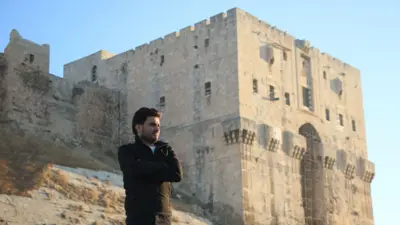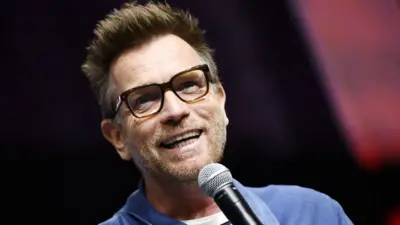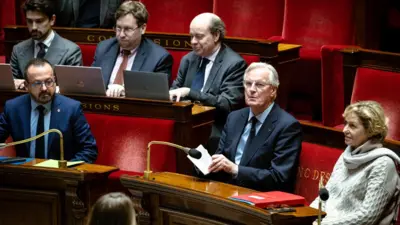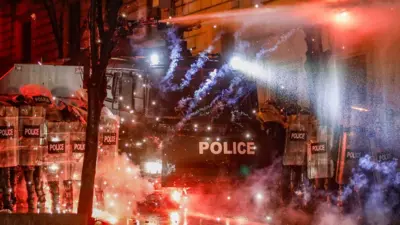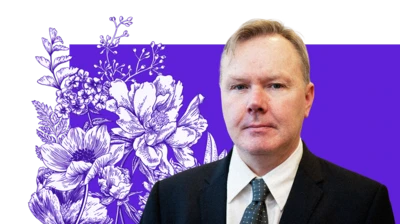We've updated our Privacy and Cookies Policy
We've made some important changes to our Privacy and Cookies Policy and we want you to know what this means for you and your data.
The 'Thatcher Factor': My personal post script
Image source, AFP
- Author, Patrick Burns
- Role, Political editor, Midlands
At last the story can be told: Margaret Thatcher got me my job at the ґуПуґ«ГЅ.
She had just become the Opposition Leader. I had recently graduated from university and was entering the hallowed portals of Broadcasting House in London for the first time. I was one of the candidates shortlisted for a news traineeship, the equivalent of an apprenticeship in broadcast journalism.
On top of a searching interview, I was also to face a rigorous test of my news judgement, in competition with all the other would-be David Dimblebys.
The exercise took the form of a series of news agency print-offs, presented to me at random intervals, detailing the twists and turns of the recent Conservative Leadership contest: the initial assurances from "friends of Ted Heath" that he had the support to see-off his challenger; then the first indications that the vote would be much closer than originally expected; and finally the sensational outcome: Britain was to have her first female Leader of the Opposition.
My challenge was to translate these fast-changing, often contradictory, updates into coherent scripts which would have been fit for broadcast while the epic was being played out.
Thank you Mrs T. I owe it all to you.
Northern Ireland
This was just the first of many occasions when her life story provided a context for my own career in the foothills of political journalism.
By the time she was elected prime minister four years later, I had become a news reporter with ґуПуґ«ГЅ Northern Ireland.
I was assigned to cover her first visit to that troubled province. I found myself with about a dozen other accredited journalists in a minibus travelling through the centre of Belfast behind the prime minister's cortege.
Security could not have been tighter.
So imagine what went through the minds of the panic-stricken security teams when she suddenly ordered her bomb-proof Jaguar to stop so that she could plunge into the crowds thronging the pavements around Donegal Square.
Police officers threw an impromptu cordon around her, but not before I had somehow contrived to get myself inside it, my portable tape recorder over my shoulder.
The result was my first major exclusive, thanks again Mrs T.
She told me she had come to meet the "real people" of Northern Ireland. The interview was an emphatic affirmation of her determination to serve as the Prime Minister of Great Britain and Northern Ireland; this, remember, was a time when the security forces were contending with so-called no-go areas in many parts of the province.
Miners' strike
Spin forward another five years to the miners' strike. I was reporting live for ґуПуґ«ГЅ Breakfast from Littleton Colliery near Cannock in Staffordshire. Lorries carrying coal were running the gauntlet of striking miners picketing the colliery gates.
Entire families had been divided, brother and against brother, father against son. When brick-ends started hurtling perilously close to my unprotected head and to those of my cameraman and sound recordist, a police superintendant marched sternly towards us with a warning that his officers could no longer guarantee our safety. On our heads be it.
It was, of course, Arthur Scargill not Margaret Thatcher who had called the strike. But the scenes played-out again and again during that year of misery in mining communities were far removed from the vision of Britain she had projected when she quoted the Prayer of St Francis on entering Downing Street for the first time.
By that time I had also witnessed the now-notorious mass meetings in Cofton Park near the Longbridge car plant in Birmingham. "Red Robbo & Co" used to choreograph their "unanimous" shows of hands heralding the inevitable strikes that did so much to reinforce perceptions that Britain had become ungovernable and was in terminal decline.
Mrs Thatcher's admirers believe that curbing the power of the unions was just part of the economic modernisation over which she presided.
But at what cost to regions like ours?
Her detractors remind us how we endured year after grinding year of anguish as "lame duck" industries were left to go to the wall; unemployment trebled between 1980 and 1984.
But her admirers believe the pain was a necessary evil to save this nation from an even greater catastrophe: in hastening the end of mining and other "rust bucket" industries, they argue, she managed to make us leaner and fitter, faster.
This debate will go on for years.
Westminster
Only with hindsight did it become clear that the years immediately after the defeat of the miners and running-up to her third election victory in 1987 represented the high-water mark of the Thatcher era.
I was there, on the "inside track" at Westminster, to experience this extraordinary period in politics as a ґуПуґ«ГЅ lobby correspondent under the legendary Political Editor, John Cole.
While Mrs Thatcher was carrying all before her, the Opposition Leader Neil Kinnock was fighting energy-sapping battles on separate fronts: rebuilding Labour's electoral support after their crushing defeat under Michael Foot while also rooting-out Militant, which he believed was becoming a cancerous "party within a party".
The Prime Minister, by contrast, cut a commanding figure.
I remember one Friday I was holding the fort in the correspondents' office: as usual, the heavy-hitters in the team had begun their weekends early.
Out of the blue, an interview with the PM was required within a very tight schedule in order to make the teatime TV and radio news. A cacophony of instructions from assorted producers and editors rang in my ears as I sat down face-to-face with the Iron Lady in Number Ten.
The interminable technical checks finally took their toll on my nerves. I had been doing my best to hide the fact that I was struggling to bring those proverbial "butterflies" under control.
But she registered it in an instant and with an air of practised insouciance, she announced: "I think we'd just better get on with this, hadn't we."
Now, and for the last time, thanks again Mrs T.
Top Stories
More to explore
Most read
Content is not available

